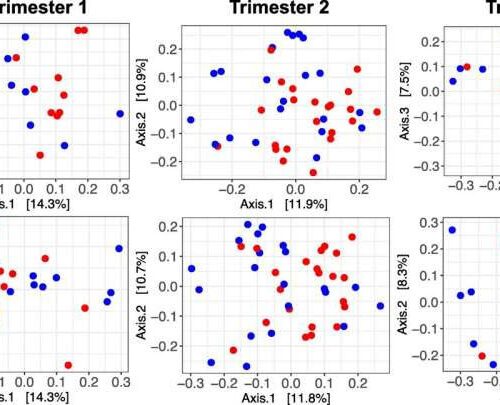BRIGHAM AND WOMEN’S HOSPITAL A high body mass index (BMI) is closely correlated with insulin resistance and type 2 diabetes. For decades, nutrition guidelines have emphasized the necessity of decreasing intake of dietary fats. Yet, even as studies demonstrate ties between foods laden with simple carbohydrates and metabolic dysfunction, much remains unknown about how the...
Category: <span>Nutrition & Dietics</span>
Large study shows regular millet consumption can combat anemia
IMAGE: THE INHERENTLY IRON-RICH PEARL MILLET IN A FIELD CREDIT: PS RAO /ICRISAT A new study has shown that regular consumption of millets can improve hemoglobin and serum ferritin levels to reduce iron deficiency anemia, which is rising globally. The recently published research, a meta-analysis of 22 studies on humans and eight laboratory studies on millets consumption...
Dietary changes could help reduce pregnancy complications in women with type 1 diabetes
by Walter and Eliza Hall Institute of Medical Research Beta diversity analysis by T1D status. PCoA ordination plots based on Bray-Curtis distances between samples at the strain and species taxonomic levels separated by trimesters in pregnancy. T1D: women with type 1 diabetes (red); Non-T1D: women without T1D (blue). Credit: DOI: 10.1186/s40168-021-01104-y A recent study by WEHI...
Research review shows intermittent fasting works for weight loss, health changes
UNIVERSITY OF ILLINOIS AT CHICAGO Intermittent fasting can produce clinically significant weight loss as well as improve metabolic health in individuals with obesity, according to a new study review led by University of Illinois Chicago researchers. “We noted that intermittent fasting is not better than regular dieting; both produce the same amount of weight loss...
Study: Moderate carbohydrate intake is a cardiovascular benefit for women
by Monash University Credit: Pixabay/CC0 Public Domain Women’s heart health has been the focus of a recent study by Monash University, with researchers finding that proportional carbohydrate intake and not saturated fat was significantly associated with cardiovascular disease benefit in Australian women. Cardiovascular disease (CVD) is the leading cause of death in women. Poor diet is...
Nutrition in primary care yields health and economic benefits
by Griffith University Credit: Pixabay/CC0 Public Domain Personalized nutrition advice from primary healthcare providers including General Practitioners is better than usual care at improving a person’s health and costs little more, a Griffith University study has found. Researchers from Griffith’s Healthy Primary Care team conducted an international review of published health studies from the UK, Ireland, Western Europe, The...
How high-fat diets allow cancer cells to go unnoticed
IMAGE: A MICROSCOPIC IMAGE OF A NORMAL MOUSE SMALL INTESTINE. CELLS STAINED RED EXPRESS NORMAL AMOUNTS OF CELL-SURFACE TAGS (MHC-II) NEEDED BY IMMUNE CELLS TO FIND THREATS LIKE INFECTIONS OR CANCER. HIGH-FAT DIETS REDUCE THE LEVELS OF MHC-II TAGS IN INTESTINAL CELLS, AND SO THE IMMUNE SYSTEM HAS A HARDER TIME RECOGNIZING INTESTINAL TUMORS. CREDIT:...
Researchers studying diet composition, with no weight loss, to treat Type 2 diabetes
by Adam Pope, University of Alabama at Birmingham The study, led by Barbara Gower, Ph.D., is the first randomized clinical trial of a hypothesis that reducing fat stored around organs, through diet alone, can rescue beta-cell function. Credit: University of Alabama at Birmingham A clinical trial now enrolling at the University of Alabama at Birmingham is...
Adjusting fatty acid intake may help with mood variability in bipolar disorders
PENN STATE HERSHEY, Pa. — Can specific dietary guidelines help people living with bipolar disorders better manage their health? Maybe someday, according to a new study by Penn State College of Medicine researchers. Clinical trial results showed that a diet designed to alter levels of specific fatty acids consumed by participants may help patients have less variability...
Intermittent fasting can help manage metabolic disease
WASHINGTON—Eating your daily calories within a consistent window of 8-10 hours is a powerful strategy to prevent and manage chronic diseases such as diabetes and heart disease, according to a new manuscript published in the Endocrine Society’s journal, Endocrine Reviews. Time-restricted eating is a type of intermittent fasting that limits your food intake to a...






